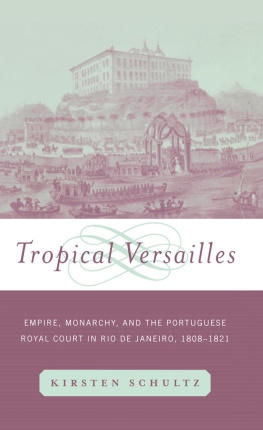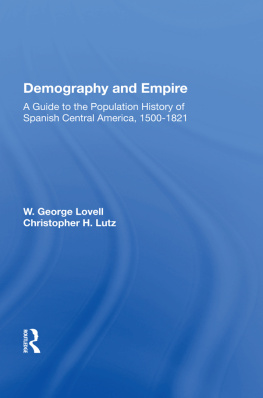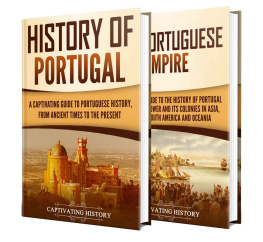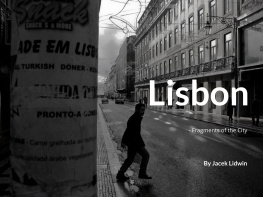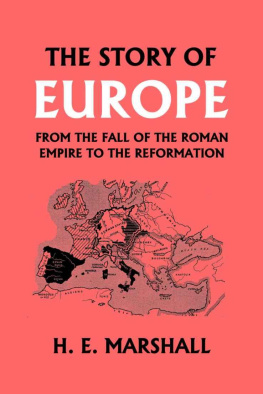A volume in the series New World in the Atlantic World, edited by Jack P. Greene and Amy Turner Bushnell. Volumes in this series to date include Tropical Versailles: Empire, Monarchy, and the Portuguese Royal Court in Rio de Janeiro, 1808-1821 and Creole Gentlemen: The Maryland Elite, 1691-1776.
Published in 2001 by
Routledge
711 Third Avenue
New York, NY 10017
Published in Great Britain by
Routledge
2 Park Square, Milton Park
Abingdon, Oxon OX14 4RN
Routledge is an imprint of the Taylor & Francis Group.
Copyright 2001 by Routledge
All rights reserved. No part of this book may be printed or reproduced or utilized in any form or by any electronic, mechanical or other means, now known or hereaftet invented, including photocopying and recording, or in any information storage or retrieval system, without permission in writing from the publisher.
Library of Congress Cataloging-in-Publication Data
Schultz, Kirsten
Tropical Versailles: empire, monarchy, and the Portuguese royal court in Rio de Janeiro, 1808-1821 / Kirsten Schultz.
p. cm.
Includes bibliographical references and index.
ISBN 0-415-92987-3 (hb.) ISBN 0-415-92988-1 (pb.)
1. BrazilHistoryUnited Kingdom, 18151822. 2. BrazilHistory17631822. 3. Rio de Janeiro (Brazil)History19th century. 4. MonarchyBrazilHistory19th century. 5. MonarchyPortugalHistory19th century. 6. BrazilRelationsPortugal. 7. PortugalRelationsBrazil. I. Title.
F2534.S324 2001
981.53033dc21
00-068741
THIS BOOK BEGAN AS A DISSERTATION AND RESEARCH FOR THAT DISSERTATION BEGAN at The John Carter Brown Library, Providence, Rhode Island, in the Summer of 1994. Along with generously providing funding to do so, the library also furnished a forum where I first formally shared ideas about this project. Funding for research in Rio de Janeiro, Brazil was provided by the Comisso Fulbright, Brasilia, and funding for additional research in Lisbon, Portugal was provided by the Joint Committee on Western Europe of the American Council of Learned Societies and the Social Science Research Council with funds from the Luso-American Development Foundation. I would also like to acknowledge the generous assistance provided by the archivists and librarians at the various institutions in the United States, Portugal, and Brazil where I conducted research: in the United States, The John Carter Brown Library, The New York Public Library, and the Interlibrary Loan Office at Bobst Library, New York University; in Portugal, the Arquivo Nacional da Torre do Tombo, the Arquivo Histrico Ultramarino, and the Biblioteca Nacional, Lisboa; in Rio de Janeiro, the Arquivo Nacional, the Biblioteca Nacional, and the Arquivo Histrico Itamaraty. In particular, the staff of the Rare Book and Manuscript Divisions at the Biblioteca Nacional, Rio de Janeiro did their best to ensure access to their collections at a time when building maintenance and reforms meant that the conditions for attending to researchers were far from ideal. At the Arquivo Nacional in Rio de Janeiro Satiro Nunes always enthusiastically shared his understanding of the intricacies of the archives early nineteenth-century collections. In So Paulo, I would like to thank Jos Mindlin for allowing me access to the Biblioteca Jos Mindlin, and Cristina An-tunes for making research there truly a pleasure. The Biblioteca includes not only the invaluable collection of Jos Mindlin, but also the extensive holdings from Rio de Janeiros Royal Press collected and studied by the late Rubens Borba de Moraes.
My research would not have been possible without the guidance and encouragement I received before I reached the archives. Barbara Weinstein, Ronnie Hsia, Maria Ligia Prado, Kenneth Maxwell, Nelson Schapochnik, Jeffrey Needell, Thomas Cohen, Richard Graham, David Higgs, and Roderick Barman generously provided comments on initial outlines for this project and made suggestions about sources, related scholarship, and Brazilian archives. Professor Barmans support was particularly encouraging, as it was after reading his work that I first began to consider the questions raised by the transfer of the court. Above all, however, it was Warren Deans supportive criticism during the various stages of defining a dissertation topic that helped me to find a more analytical focus for the numerous questions about the transfer of the court that initially surfaced. Warren is not here to see the results in published form. His tragic death in 1994 was an insurmountable loss for his family and friends and for scholars of Brazil. For me it was both a personal loss and, as a graduate student, a loss that left me in a difficult position professionally. I would not have persevered in the endeavor of graduate school or research for this project had it not been for the support I subsequently received. Antonio Feros, Ronnie Hsia, Maria Ligia Prado, and Barbara Weinstein all went beyond the call of duty, beyond the boundaries of their own institutions in some cases, and beyond their fields of expertise in others, providing examples of the kind of collegiality that sustained Warrens own faith in academic life.
In Rio de Janeiro, Gladys Sabina Ribeiro pointed me in the direction of a collection of documents at the National Archive that became crucial sources for this book. Alessandra Silveira, Tania Salgado Pimenta, and Brodwyn Fischer made the most excellent research companions both in the archive and during debriefing sessions on the calado. Back in New York, funding for writing was provided by the Warren Dean Fellowship, Department of History, New York Universitya fellowship created with the support of Elizabeth Deanand by the Graduate School of Arts and Sciences, NYU, and the American Association of University Women. The Society of Fellows in the Humanities at Columbia University provided me with the resources and the time to do additional research and writing. While writing various drafts of this book, I benefitted from the comments and criticism of Antonio Feros, Ada Ferrer, Ronnie Hsia, and Barbara Weinstein; from Teresa Meades careful reading of my dissertation; from Bonnie Wassermans help with language and orthography and Mary Steibers assistance with an important classical reference; and from the encouragement from and exchange of ideas and sources with Pedro Cardim, Antnio Manuel Hespanha, Jurandir Malerba, David Higgs, Ftima Gouva, and Iara Lis Carvalho e Souza. Iaras recent Ptria Coroada has undoubtedly enriched my understanding of late eighteenth- and early nineteenth-century Brazilian political culture.
At various stages of writing this book I also benefitted greatly from those who commented on presentations of parts of this project in a number of venues, including The Cooper Union for the Advancement of Science and Art; the College of Charleston, South Carolina; the Society of Fellows in the Humanities, Columbia University; the Graduate Student History Workshop and the Atlantic History Workshop, New York University; the Conference on Latin American History; the Columbia University Brazil Seminar; the Latin American Studies Association Conference; and the Society of Spanish and Portuguese Historical Studies Annual Conference; and especially Timothy Anna and A.J.R. Russell-Wood. I thank as well those who reviewed parts or all of this work for the Luso-Brazilian Review and Routledge, especially Neill Macaulay. Portions of this work appeared as Royal Authority, Empire and the Critique of Colonialism: Political Discourse in Rio de Janeiro, 18081821,

